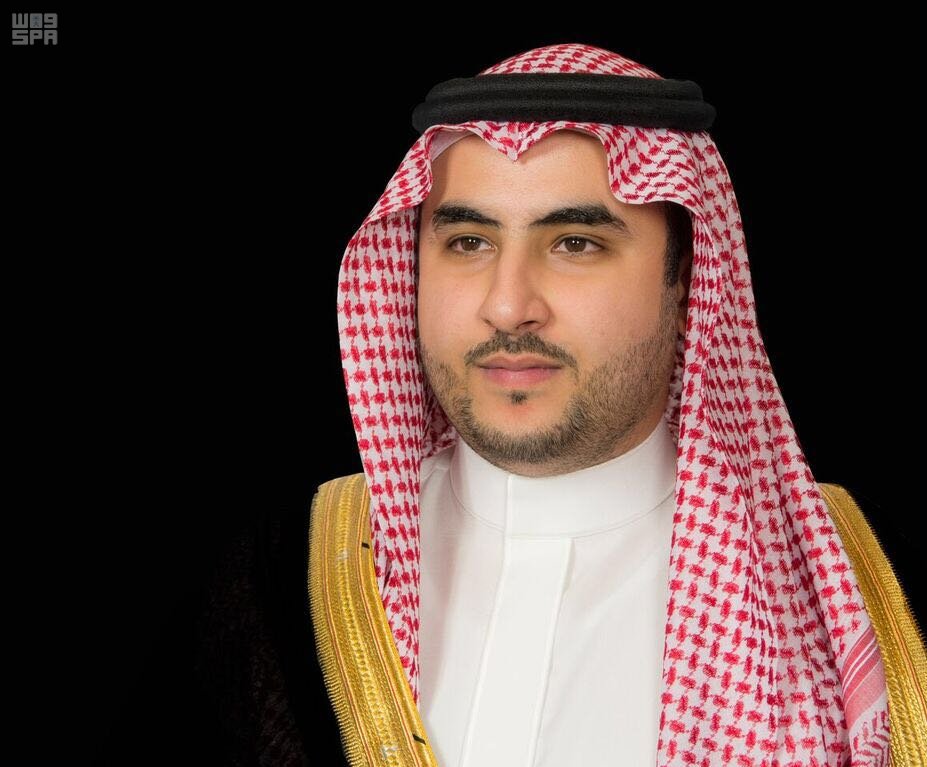Saudi Ambassador to the United States Prince Khaled bin Salman bin Abdulaziz stressed that “great progress” has been achieved in Saudi-US ties under the administration of President Donald Trump, reported the Washington Post.
He said that he believes that the president is determined to work with his allies in the region in order to confront Iranian expansionism and terrorism.
“We are happy with the current policies in the region,” he told the Post.
On the Qatar crisis, he remarked: “I believe that its policies are a threat to our national security, especially when it interferes in our domestic politics and supports extremists. . . . In Syria, they have supported al-Qaeda affiliates and some terrorist militias in Iraq. We hope Qatar will stop funding extremism.”
“The Saudi government is on the frontline of fighting terrorism. There might be people from a lot of different countries who support terrorism, but in Qatar the problem is that it is government-funded,” declared the ambassador.
Asked about moderate groups operating in Syria, he replied that there are indeed moderate opposition groups, such as the Free Syrian Army.
“There are a lot of people in Syria who want to free themselves from the dictatorship of Bashar al-Assad. We are working with our allies to help stabilize Syria,” he added, while noting that the regime leader has killed over 500,000 people.
“We are working with the United States to resolve the Syrian problem,” stressed Prince Khaled.
Asked about Saudi Arabia’s position on human rights, he said: “Every country moves forward, and we are. The last two years have been a time of big change in our country. Human rights have been moving forward, women’s rights have been moving forward. Saudi youth have been given a chance to play a part in our future.”
“Our leadership realizes that women are important to our future and to moving our economy forward. We can’t move forward without half of our population,” he stressed.
Turning to the Palestinian-Israeli conflict, the US Ambassador remarked: “Saudi Arabia has stated that we want to solve the Palestinian-Israeli issue through the Arab peace initiative, and if Israel recognizes Palestine based on the 1967 borders, the Arab world has agreed to do so.”
On Iraq, Prince Khaled said that the defeat of ISIS in Mosul “shows the determination of the United States administration and also of the Iraqi military.”
“We will be glad to see ISIS defeated in Iraq, but they are a threat to our nation and our religion. As Muslims, we in Saudi Arabia need to do whatever it takes to end this once and for all.”
He also underlined the need for Sunnis and Shi’ites to be incorporated in the political process in Iraq to avoid violence and terrorism, noting that sectarianism “always leads to terrorism.”
“The Sunnis and Shi’ites have to be treated equally as Iraqi citizens. Iran wants Iraq to obey Iran. We support the independence of Iraq,” continued the Saudi official.
Addressing the war in Yemen, he said that Saudi Arabia has been pushing all parties to the negotiating table, but the Houthi rebels reject dialogue.
“They started to march to the capital and take over Yemen before the Yemeni government asked Saudi Arabia to intervene and stop this attack. The ball is now in the Houthi court. They have to drop their weapons and become part of Yemen, not part of Iran,” explained Prince Khaled to the Washington Post.
On Iran’s threat to close the Arab Gulf, he said that it has made this threat “multiple times.”
“The whole world, including our government, is worried about that. The Strait of Hormuz is important not just to our economy, but to the international economy.”
“I think the US and its allies realize how big the Iranian threat is to international security, and we are ready to work together to contain Iranian actions and expansionist policies,” he stated.
Asked about the September 11 attacks and attempts to link them to Saudi Arabia, he replied: “We had nothing to do with 9/11. In 1994, we took away bin Laden’s Saudi citizenship when he was in Sudan. In 1996, bin Laden issued a declaration of war against the United States and Saudi Arabia. We think the same people who attacked the United States on 9/11 attacked us in Saudi Arabia multiple times.”
“We see them as 19 al-Qaeda members because those people represented al-Qaeda. There is a reason why al-Qaeda chose 15 Saudis. They wanted to create a split between Saudi Arabia and the United States,” said the ambassador.
